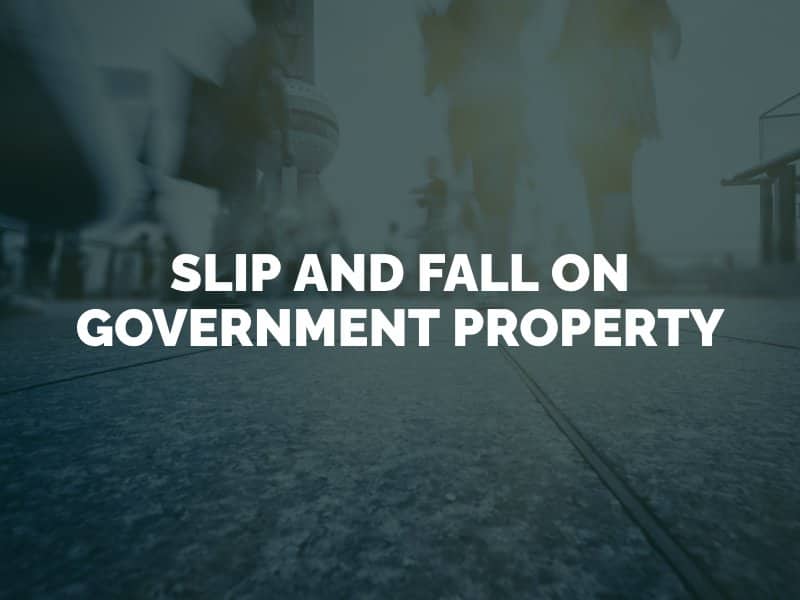Not all slip and fall accidents in Colorado take place on privately owned properties. You may slip and fall and suffer a serious injury on government-owned property, as well, such as on a public sidewalk or at a police precinct. If you suffer a slip and fall injury on government property, you may still be eligible for a payout. Learn more about these special types of claims in Colorado to protect your rights as a victim.

Yes, under certain circumstances, you can file a lawsuit against the government. Traditionally, government entities had legal immunity, meaning they could not be held liable for any injuries suffered by victims in their care. The Colorado Governmental Immunity Act (CGIA) however, created exceptions to the rule. Now, the state government or a municipality can be held liable for accidents that are caused by torts (wrongful actions, including negligence). If a government employee or the government agency itself is guilty of a tort in connection to the injury in question, it can be held liable for the victim’s related expenses.
Like any slip and fall lawsuit, there must be evidence that the owner or controller of the government property was negligent in relation to the slip and fall accident. Negligence in personal injury law is the failure to act with the proper amount of care, resulting in harm or bodily injury to others. Unless the government was negligent in connection to your slip and fall injury, you may not have the right to bring a premises liability lawsuit. Examples of negligence in a slip and fall case include:
In a slip and fall accident that takes place on government property, it is necessary to provide evidence that the government entity or one of its employees was negligent, and that this is why you were injured. If you were at a United States post office, for example, and slipped on a freshly waxed floor because there were no warning signs, you may be able to hold the government liable for the negligence of a post office employee.
If you wish to bring a claim against the government for a slip and fall accident, you must follow special procedural rules laid out by the CGIA. There is a unique deadline on a claim that is brought against the government, for example. While the typical statute of limitations on a personal injury case in Colorado is 2 years, a claim against the government must start with a notice sent to the government agency within just 180 days of the discovery of the injury.
Once you or your Denver personal injury attorney file this special notice, the government agency will investigate the slip and fall accident to determine its liability. The government agency may offer you a settlement to resolve the dispute or reject your claim. If the agency rejects your claim or does not respond within 90 days, you have the right to bring your slip and fall case to trial by filing a lawsuit against the government.
If you believe you have grounds to file a slip and fall case for an accident that took place on government or public property, it is critical to contact an attorney right away. The clock is already ticking on your right to file a claim under the CGIA. A lawyer can help you properly navigate the special rules for bringing a claim against the government, as well as protect your rights during settlement negotiations. To speak to a slip and fall accident lawyer near you about a potential claim, contact Fang Accident Lawyers.